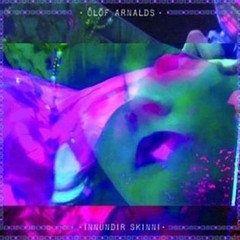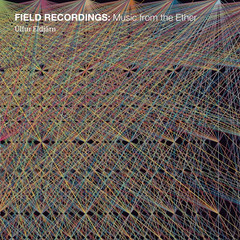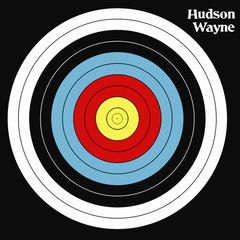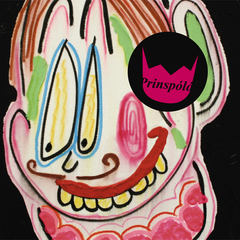In case you didn’t notice, year 2010 is over. It’s the truth, believe me! Look at your computer’s calendar if you don’t trust me! Are you convinced now? Good.
I feel I was betrayed by most of the releases in my “greatest expectations for an unforgettable 2010 in music” list. Hmm, I shall restrain myself before I lose my temper again. I don’t want to start this once more, so I am making now a new list, smaller and definitely more down-to-earth. This is an excellent idea, isn’t it?
I’ve been listening to a lot of Icelandic music this year, maybe also thanks to the fact non-Icelandic music overtook my poor ears with waves of chagrin throughout the past twelve months — ah, here I go again…
Icelandic music is very popular at the moment, but not all Icelandic music is celebrated or listened to enough outside Iceland. There is so much music that is released in Iceland every year, you couldn’t possibly listen to every single album. Not if you want to put a little effort and concentrate on each release for more than thirteen minutes — no, I have not counted, this is just a figure of speech.
I don’t intend to pick the “Best Icelandic Albums” of 2010. How could anybody pick a “best of” is impossible for me to fathom. I am going to pick five albums you may not be aware of that were released during 2010, so you can be aware of them now and make up for your past distraction.
Note: if you are expecting links to free downloadable stuff, you’ll be disappointed. But before you start cursing the author of this entry, you’ll notice that if you click on album covers you’ll be redirected to a site where — guess what? — you’ll be able to listen to each album for free if you patiently register and wait for activation. You can even purchase and download them later, if you like them enough.
Enjoy.

Maybe not exactly an “overlooked” album, but definitely not enough celebrated for its excellence. Innundir Skinni is as good as songwriting can get. Icelandic songwriting, that is, but the album goes well beyond its native insular definition.
Many Icelandic musicians, and not only them, seem to be terribly afraid of horror vacui, and they end filling their songs with layers and layers of instrumental gimmicks: several guitars, violins, accordions, squeaking ducks, hidden people’s falsetto, and so on and so forth. Average Icelandic bands are not able to write a song that doesn’t include the equivalent of a small orchestra. Sometimes the richness of instrumentation can be well justified, but in most cases it’s just the easiest way out from an embarrassing lack of substance. In concerts, this kind of bands try at all costs to recreate the multi-layered effects they achieved on album, often with the aid of pre-recorded samples. Of course you can do that, my dear musician, but be careful this doesn’t become a limitation to your creativity.
Ólöf Arnalds proves once again you can fill your public’s ears and hearts with music with just voice and guitar, without relying on insane amounts of distracting elements that have no real impact on the message you intend to convey. Music is in its content and communicative power, not in its flashy exterior.

Erratic atmospheres permeate Úlfur Eldjárn’s first full-length work.
As the title suggests, ethereal notes and evocative moods, sparse and mysterious, run throughout the entire album. Like a powered up white noise suite, but better, subtler, gentler even, Field Recordings: Music from the Ether is an instrumental gem that absorbs the listener’s attention indirectly, mainly in the way the reality starts to be perceived while listening to it. The landscape changes its hues, becoming vague, almost shapeless, in accordance with the acoustic flow. Through the album’s notes, the dreary shadows and the dim light of wintry nordic afternoons become vital nodes in themselves.

Although Sóley’s work is an EP, not a full-length album, I felt it occupied an important place in 2010 and should not be missed.
Theater Island is almost a journey undertaken by Sóley’s musical persona’s imagination. Every song is a scene populated by presences and absences — mostly absences. Ingenuity and drama are interwoven in a colorful picture with more than a few dark connotations.
Made of inner rooms and isolated spaces in which Sóley sometimes wanders pursuing shadows and sometimes rests in calm contemplation, on the whole the EP gives the impression of altered fairy tale in form of music, whose songs could be individual chapters, cohesive but without ultimate interpretations.

Despite the not-so-distant echoes from classic singer-songwriters with their general influences, Hudson Wayne’s album is more aimed at the suggestion of a mood than at representing a state of mind through linear, although complex, storytelling.
The album’s sentiment is kept on melancholic monochrome tones, avoiding however to fall into stereotyped desperate whining, always the greatest temptation to make ordinary stories of quiet resignation more captivating, often at honesty’s expenses. This is why the result in Hudson Wayne’s case may feel too humdrum and not poignant enough to those that when a musician try to expose mild dejection expect an ostentatious display of misery. But those who have ears and disposition to carefully listen, will appreciate the uncontrived sentimentality of How Quick is Your Fish?.
To those who are fond of labels and genres, Hudson Wayne deliver a bit of sadcore made in Iceland.

Pop is nice, but pop can get very annoying when it’s too self-conscious; you can roll your eyes all you want and think what I am saying is a contradiction, but this is a very common problem when it comes to pop music. Indie pop is particularly dangerous, because very often it can get out of hand with the excuse of its indie status. If all pop stopped pretending to be more than it actually is, with pretentious intricateness, misplaced conceptualizations and all that jazz — this is too a figure of speech, of course — sometimes we could just sit and listen to it with a more relaxed intent, no?
Jukk solves dilemma in the fact it doesn’t pretend to be something that it is not. It is a pleasantly high-spirited album, refreshing also in the way it is played and recorded. Its weird nonsense, which can be a turnoff for those who don’t appreciate this kind of approach, is better understood with a smattering of Icelandic language. The album is fully enjoyable just for the music though.
Jukk is a 100% indie pop album, and a fun one. Because let’s not forget pop music is also about entertainment.
Alas, I would have liked a lot to have Kimono’s Easy Music For Difficult People in this list, but the album was released at the end of year 2009, so for correctness’ sake I could not include it. If you caught my hint though, you will want to click on the above link.
I had the chance to get the album of Soley when I was in Iceland months ago. I was recommended it because I like seabear. I enjoyed it very much. I hope she will release soon new material.
I was not aware of some of these albums. Thanks for sharing!
Thanks for sharing these. Found almost all of them on iTunes.
I didn’t know about some of this music before reading both here and on your FB page. Thanks for sharing!